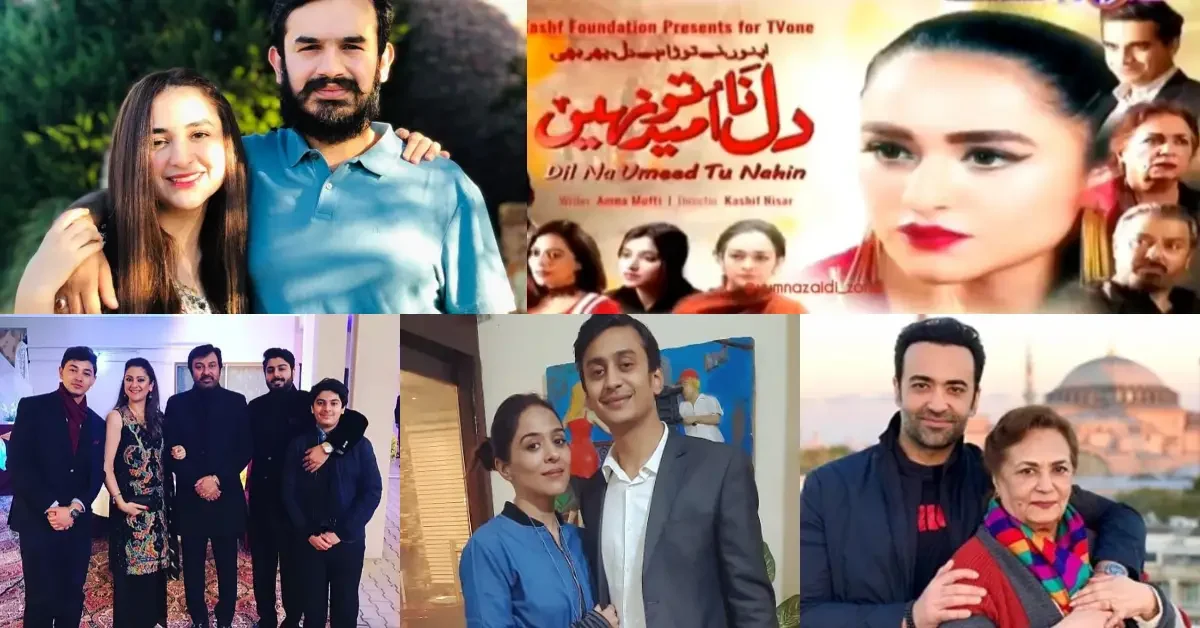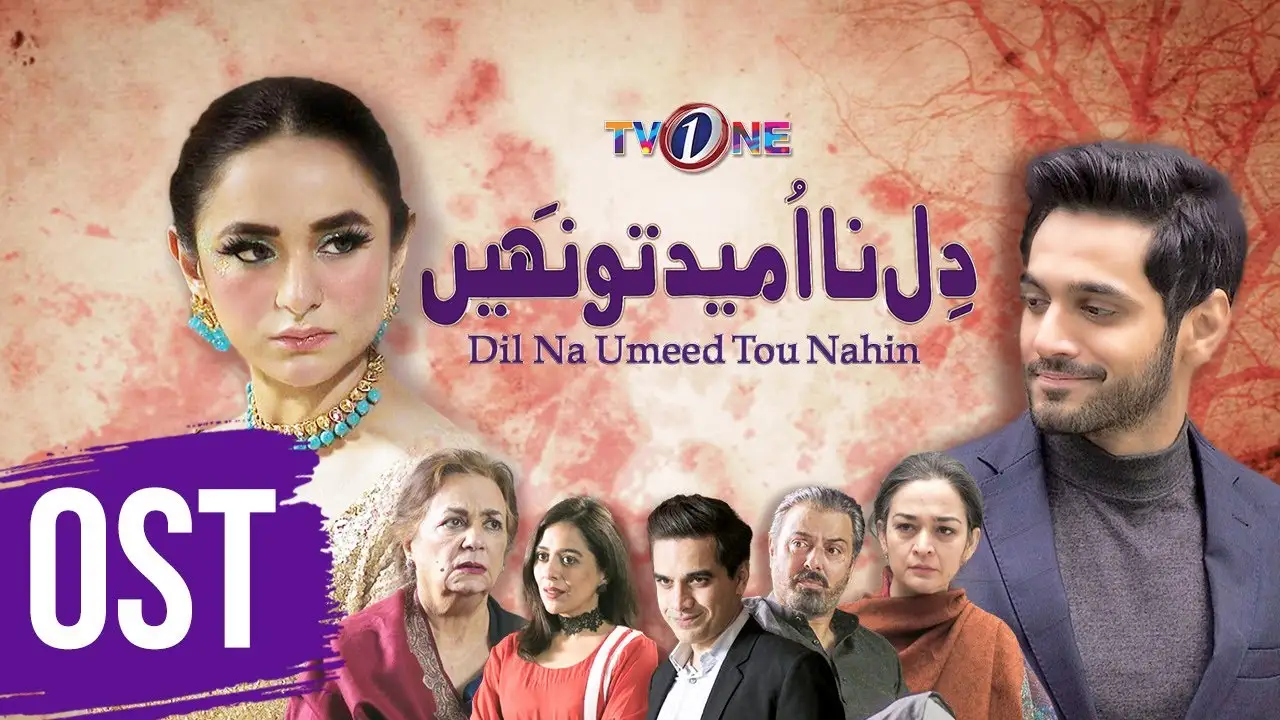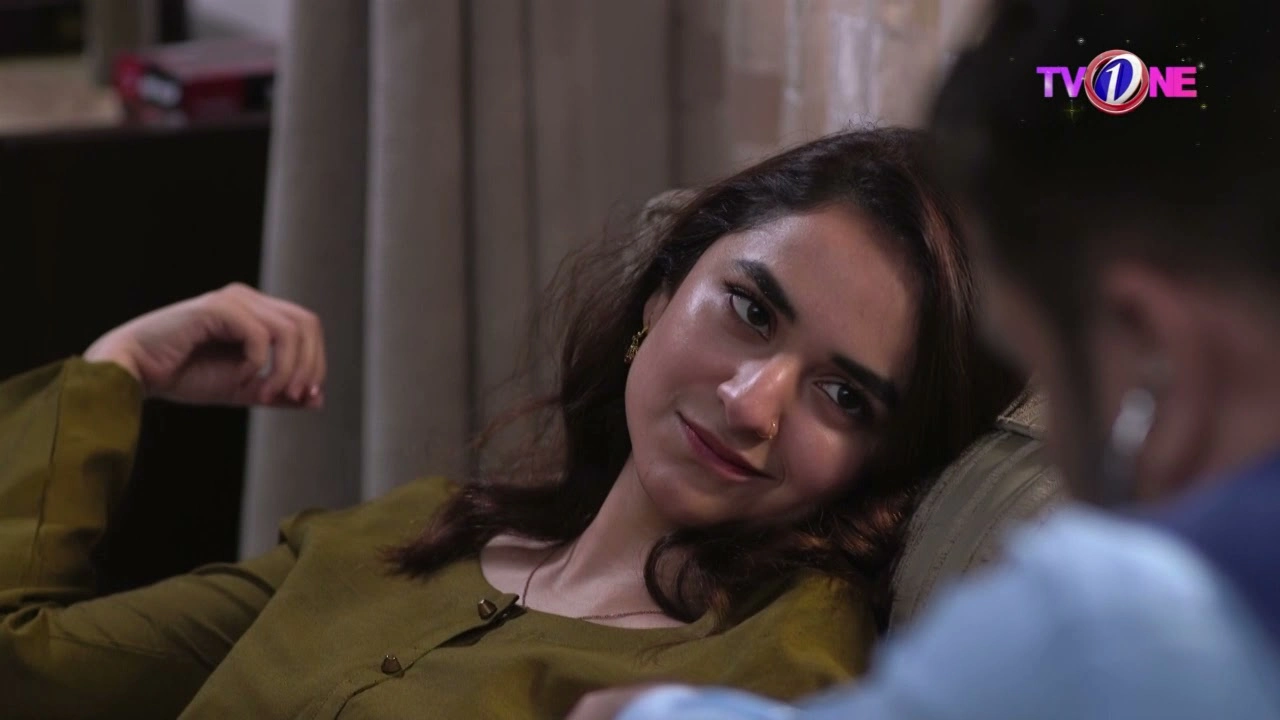Dil Na Umeed Toh Nahi Drama Review – The Pakistani drama industry is known for producing emotionally compelling and socially relevant stories, and one of its most powerful projects is Dil Na Umeed Toh Nahi Drama Review. This drama left a deep impact on audiences by addressing issues that are often brushed under the carpet in society.
The drama was produced by Kashf Foundation, directed by Kashif Nisar, and written by Amna Mufti. Its aim was not only to entertain but also to highlight grave social problems such as child abuse, human trafficking, and the struggles of marginalized communities. What makes it stand out is the raw storytelling and heartfelt performances from the cast.

This review will take a closer look at how the drama successfully combined reality with fiction, keeping the audience engaged while raising awareness about important issues. Through this Dil Na Umeed Toh Nahi Drama Review, readers will get a complete understanding of why this drama is considered one of the boldest and most significant projects in the history of Pakistani television.
Background Information
Dil Na Umeed Toh Nahi aired on TV One in January 2021 and later gained further popularity through online streaming platforms. The drama was produced by Kashf Foundation, which has previously collaborated on projects aimed at promoting awareness about social justice. The foundation’s involvement ensured that the story remained authentic, meaningful, and research-based.
The drama was helmed by the talented director Kashif Nisar, who is known for his realistic storytelling style. Writer Amna Mufti crafted the script with incredible depth, capturing the harsh realities of life without losing sight of hope and resilience. The project starred some of Pakistan’s most versatile actors, including Yumna Zaidi, Wahaj Ali, Yasra Rizvi, Omair Rana, and Samiya Mumtaz.
The title itself, Dil Na Umeed Toh Nahi (translated as The Heart is Not Without Hope), reflects the central theme of the drama—finding light even in the darkest of circumstances. It is a layered story that intertwines different lives, highlighting how hope can be a powerful tool for survival.
This Dil Na Umeed Toh Nahi Drama Review will show that the drama was not just another TV series; it was a movement that shed light on realities most people shy away from discussing openly.
Plot Summary
The plot of Dil Na Umeed Toh Nahi revolves around the interconnected lives of multiple characters, each representing different social struggles in Pakistan. The story begins with Sumbul, played by Yumna Zaidi, a young girl from a rural background who dreams of becoming a schoolteacher. Unfortunately, her life takes a tragic turn when she falls victim to human trafficking and ends up in the dark world of prostitution.
Parallel to her story, we see Jamshed (Wahaj Ali), a young boy who aspires to become a cricketer but is forced into child labor and exploitation. Another narrative follows Naseem Zehra (Yasra Rizvi), who fights against poverty and family pressures to build a better life. Omair Rana’s character, Zulfi, adds more layers to the drama as a morally complex figure caught between greed, power, and guilt.
Throughout the drama, these stories intertwine, reflecting the harsh realities of society. Despite the grim circumstances, the drama emphasizes hope, resilience, and the strength of the human spirit.
In this Dil Na Umeed Toh Nahi Drama Review, it is important to note that the drama does not rely on typical melodrama but instead focuses on authentic human experiences, making it both heartbreaking and inspiring at the same time.
Character Analysis
The strength of Dil Na Umeed Toh Nahi lies in its characters, each of whom is intricately designed to reflect different aspects of society.
-
Sumbul (Yumna Zaidi): The heart of the drama, Sumbul is a symbol of innocence lost to the cruelty of exploitation. Yumna Zaidi’s performance is extraordinary, portraying both vulnerability and resilience.
-
Jamshed (Wahaj Ali): Representing the struggles of many underprivileged children, Jamshed’s character is a reminder of lost dreams due to poverty and exploitation. Wahaj Ali brought sincerity and depth to the role.
-
Naseem Zehra (Yasra Rizvi): A determined woman who fights against societal barriers. Yasra Rizvi’s role highlighted the challenges of women navigating poverty and cultural restrictions.
-
Zulfi (Omair Rana): A morally ambiguous character who oscillates between cruelty and compassion. His complexity made the drama more thought-provoking.
-
Supporting Characters: Samiya Mumtaz and others added further richness, ensuring that every storyline felt authentic and connected.
The cast gave life to their characters in such a realistic manner that the audience felt emotionally invested in their journeys. This Dil Na Umeed Toh Nahi Drama Review must emphasize that without such stellar performances, the impact of the story would not have been as profound.
Dil Na Umeed Toh Nahi Info | OST Credits
| Drama Info | Details |
|---|---|
| Drama Name | Dil Na Umeed Toh Nahi |
| Writer | Amna Mufti |
| Director | Kashif Nisar |
| Producer | Kashf Foundation, MD Productions |
| Channel | TV One |
| Release Year | 2021 |
| Genre | Social Issue-Based Drama |
| OST Credits | Details |
|---|---|
| Title Song | Dil Na Umeed Toh Nahi |
| Singer | Ali Sethi |
| Composer | Sami Khan |
| Lyricist | Amna Mufti |
| Music Production | Harsakh Production |
The OST played an important role in creating an emotional connection with the audience. Ali Sethi’s soulful voice, combined with heart-touching lyrics, elevated the drama’s overall impact. The song became iconic, further cementing the place of the show in viewers’ hearts.
Cast Name and Role
The drama featured a strong and versatile cast:
-
Yumna Zaidi as Sumbul: A central character who symbolizes the struggles of trafficking victims.
-
Wahaj Ali as Jamshed: A young boy with dreams destroyed by societal injustice.
-
Yasra Rizvi as Naseem Zehra: A representation of courage and resilience.
-
Omair Rana as Zulfi: A morally complex character balancing guilt and power.
-
Samiya Mumtaz as Savera: A figure that adds strength and maternal energy to the story.
-
Noman Ijaz (Guest Role): His impactful performance in limited screen time added weight.
-
Other Supporting Actors: Played crucial roles in making the story realistic and multifaceted.
Every actor’s dedication to their role is evident, making the performances raw and relatable. In this Dil Na Umeed Toh Nahi Drama Review, the casting deserves special recognition, as it was perfectly tailored to the depth and intensity of the story.
Themes and Messages
At its core, Dil Na Umeed Toh Nahi is not just about entertainment—it is a mirror to society. The drama courageously tackles themes that are rarely discussed openly in mainstream television.
The major themes include:
-
Human Trafficking: Shedding light on a dark reality that often remains hidden.
-
Child Abuse and Labor: The exploitation of vulnerable children is powerfully depicted.
-
Gender Inequality: The struggles women face in patriarchal societies are highlighted.
-
Hope and Resilience: Despite suffering, characters show that survival is possible through hope.
-
Moral Complexity: Characters like Zulfi highlight that good and evil often coexist within individuals.
The message of the drama is clear: no matter how harsh life becomes, one should not lose hope. This Dil Na Umeed Toh Nahi Drama Review underlines that the show’s strength lies in its ability to raise awareness while also inspiring audiences to reflect on their roles in creating a just society.
Loyalty, Betrayal, Justice, Greed, and Its Consequences
The drama beautifully portrays human emotions such as loyalty and betrayal, often highlighting the thin line between love and exploitation.
-
Loyalty: Characters like Naseem Zehra and Jamshed display loyalty to their dreams and loved ones despite hardships.
-
Betrayal: Sumbul’s journey begins with betrayal by those she trusted most, showing how trust can be manipulated.
-
Justice: The drama emphasizes the need for justice for victims of abuse and exploitation.
-
Greed: Zulfi’s character embodies greed, and the consequences of his actions ripple throughout the story.
-
Consequences: Every action in the drama carries consequences, reminding viewers that choices have lasting effects.
This Dil Na Umeed Toh Nahi Drama Review stresses that the balance of these emotions gave the drama its emotional power, making it relatable while also teaching important life lessons.
Family Dynamics
Family plays a central role in Dil Na Umeed Toh Nahi. From broken homes to supportive relationships, the drama explores how family can either nurture or destroy individuals.
-
Sumbul’s Family: Their failure to protect her highlights how neglect can lead to tragedy.
-
Jamshed’s Family: Poverty forces them into difficult choices, reflecting real struggles in lower-income households.
-
Naseem Zehra’s Journey: Her conflicts with her family emphasize the challenges women face when seeking independence.
-
Found Families: The drama also shows how strangers can become family when they provide love, protection, and trust.
In this Dil Na Umeed Toh Nahi Drama Review, the depiction of family dynamics demonstrates that strong family support can be a shield, while broken or toxic relationships can push individuals into dangerous paths.
Direction and Cinematography
The direction of Dil Na Umeed Toh Nahi by Kashif Nisar deserves special appreciation. Known for his raw and realistic approach, he ensured that every scene carried emotional weight and authenticity. The cinematography complemented the storytelling, capturing the harsh realities of rural and urban life.
The use of natural lighting, minimal makeup, and realistic settings added to the authenticity of the drama. The director avoided unnecessary glamour, instead focusing on the real struggles of the characters. Every frame was carefully crafted to reflect emotions—whether it was Sumbul’s despair, Jamshed’s innocence, or Zulfi’s moral conflict.
In this Dil Na Umeed Toh Nahi Drama Review, it is clear that the visual storytelling was just as powerful as the script and performances. The direction and cinematography together created a drama that felt raw, emotional, and deeply impactful.
Pacing and Plot Twists
The pacing of Dil Na Umeed Toh Nahi was steady, allowing viewers to absorb the heavy themes without feeling rushed. Unlike many dramas that drag unnecessarily, this one maintained focus and delivered impactful storytelling throughout.
The plot twists were organic and never felt forced. For example, Sumbul’s journey into the dark world of trafficking unfolded gradually, making it more realistic and emotionally powerful. Similarly, Jamshed’s transformation from an innocent boy to a victim of exploitation was heartbreaking yet believable.
The unpredictability of certain events kept the audience engaged. At times, the story delivered shocking revelations that highlighted the cruelty of society. Yet, the balance between despair and hope ensured that viewers stayed connected to the message.
In this Dil Na Umeed Toh Nahi Drama Review, the pacing and twists deserve recognition for keeping the audience emotionally invested without losing the essence of the story.
Strengths and Weaknesses
Like any drama, Dil Na Umeed Toh Nahi had its strengths and weaknesses.
Strengths:
-
Powerful script by Amna Mufti addressing taboo topics.
-
Stellar performances by Yumna Zaidi, Wahaj Ali, and others.
-
Realistic direction by Kashif Nisar.
-
A meaningful OST that elevated the drama’s emotional impact.
-
Courage to address issues like trafficking and child abuse on mainstream TV.
Weaknesses:
-
The heavy subject matter made it emotionally draining for some viewers.
-
Limited entertainment value for those seeking lighter content.
-
Certain side characters could have been explored more deeply.
Overall, the strengths far outweighed the weaknesses. In this Dil Na Umeed Toh Nahi Drama Review, it is clear that despite minor shortcomings, the drama succeeded in creating awareness and leaving a lasting impact on its audience.
Audience Reception
Dil Na Umeed Toh Nahi received widespread critical acclaim for its bold storytelling and brilliant performances. Audiences praised the drama for highlighting social issues that are rarely discussed on television. Many viewers appreciated Yumna Zaidi’s outstanding performance, calling it one of the finest in her career.
Critics also lauded the realistic approach of the drama, comparing it to international standards of storytelling. However, some viewers found the subject matter too heavy and emotionally challenging. Despite that, most agreed that the drama was a much-needed wake-up call for society.
The drama also gained international recognition, with viewers abroad applauding its courage to tackle universal issues of exploitation and injustice. Social media was filled with praise for the OST and the impactful dialogues.
In this Dil Na Umeed Toh Nahi Drama Review, it is safe to say that the audience’s reception was overwhelmingly positive, cementing the drama as one of the finest socially conscious projects in Pakistani television history.
Final Verdict
Dil Na Umeed Toh Nahi is not just a drama—it is a powerful narrative that combines social awareness with emotional storytelling. Its courage to address taboo subjects like human trafficking and child abuse sets it apart from typical television content. The outstanding performances by Yumna Zaidi, Wahaj Ali, Yasra Rizvi, and Omair Rana, coupled with Kashif Nisar’s strong direction, made it an unforgettable experience.
While the drama may not appeal to those seeking light-hearted entertainment, it serves a greater purpose by forcing society to confront uncomfortable truths. The OST, direction, and character development all contributed to making it a masterpiece.
This Dil Na Umeed Toh Nahi Drama Review concludes that the drama is a must-watch for anyone who values meaningful storytelling. It not only leaves an emotional impact but also encourages important conversations about justice, resilience, and the importance of hope.
Conclusion: Wrapping Up the Dil Na Umeed Toh Nahi Drama Review
In conclusion, Dil Na Umeed Toh Nahi stands as one of the boldest and most socially impactful dramas in Pakistani television history. Through powerful storytelling, strong performances, and raw direction, it tackled some of the darkest issues in society while still leaving audiences with a message of hope.
This Dil Na Umeed Toh Nahi Drama Review highlighted its major aspects, from the plot and characters to its themes, cinematography, and overall impact. The drama deserves recognition for showing that television can be both entertaining and educational.
Although it carried heavy subject matter, the lessons it delivered are timeless. It reminded viewers that while society may be filled with cruelty and injustice, hope is the one thing that should never be lost. Dil Na Umeed Toh Nahi will remain a reference point for socially relevant dramas in Pakistan for years to come.
FAQs
Q1: What is the main theme of Dil Na Umeed Toh Nahi?
The main theme is hope and resilience despite struggles with child abuse, trafficking, and exploitation.
Q2: Who played the role of Sumbul?
Yumna Zaidi portrayed Sumbul, delivering one of the finest performances of her career.
Q3: Who directed the drama?
The drama was directed by Kashif Nisar, known for his realistic approach to storytelling.
Q4: Is Dil Na Umeed Toh Nahi based on real events?
While not based on a single true story, it reflects real issues faced by many in society.
Q5: Why is this drama considered important?
As highlighted in this Dil Na Umeed Toh Nahi Drama Review, it is important because it tackled taboo topics and raised awareness through mainstream television.
For more drama reviews, visit The Stars Unfolded






